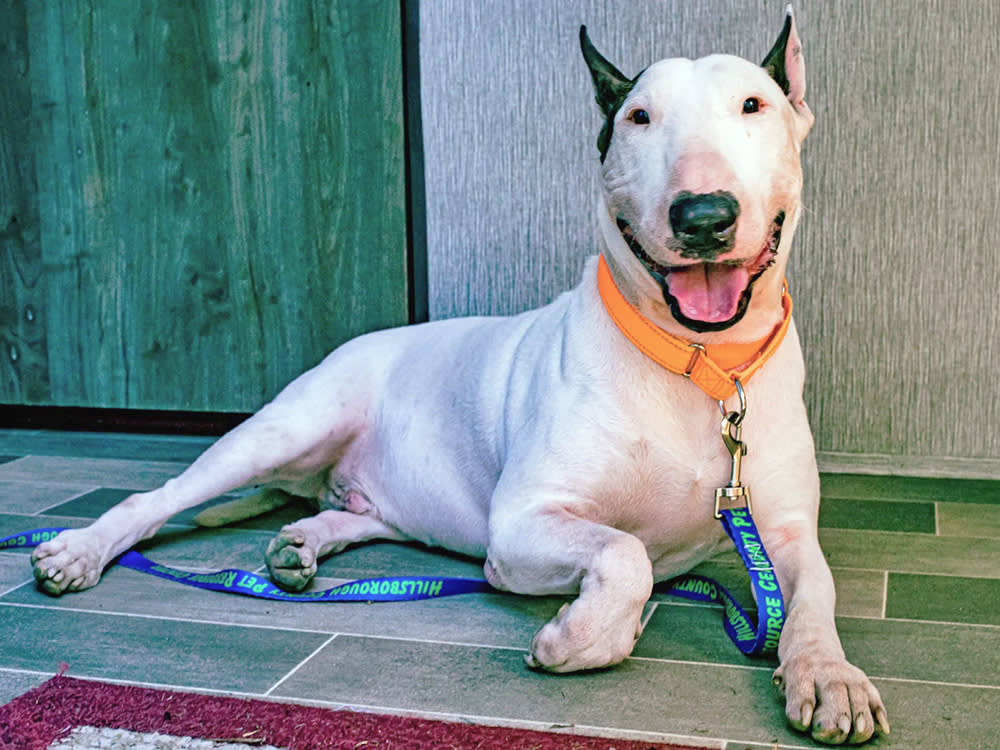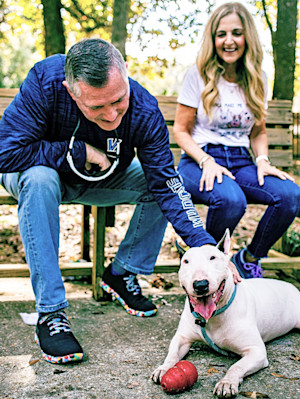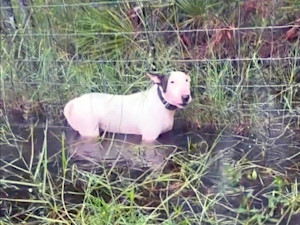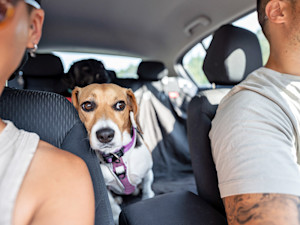‘Trooper’s Law’—Inspired by Dog Left Tied to Pole in Hurricane Milton—Is Now in Effect
Do you remember Trooper?
You may recognize Trooper, the resilient Bull Terrier whose story captured hearts and incited fury across the world when he was left tied to a poleopens in new tab in rising floodwaters during Hurricane Milton in 2024. Thankfully, Trooper’s story had a happy ending; he was adopted by a couple and quickly became best friends with their pup Dallas, another rescue Bull Terrier. Now, Trooper’s ordeal has inspired a legacy that will protect countless more dogs like him. A new Florida billopens in new tab called “Trooper’s Law” has made it a felony to restrain and abandon dogs during natural disasters. The law officially went into effect on October 1.
Trooper’s Law ensures that what happened to Trooper will be met with serious consequences for the perpetrator in future cases. Restraining and abandoning a dog during an evacuation order is now considered a third-degree felony punishable by up to five years in prison and a fine of $10,000.
Panama City Beach Representative Griff Griffitts sponsored the bill. “I can’t imagine someone doing that to something you love like that, doing that to anything that has life. It’s really cruel. It’s sad,” he said during a news conferenceopens in new tab ahead of the bill’s vote in May. “Clearly the penalties weren’t severe enough for him to think that was okay to do that.”
On the same day that the bill became law, a second piece of animal welfare legislation went into effect. The bill is called Dexter’s Law,opens in new tab named after a dog who was found gruesomely killed days after his adoption. The new legislation requires the Department of Law Enforcement to create a searchable database listing the names of people who have violated animal cruelty laws.
How much do you spend on your pet per year?
“Animals are essentially dependent on humans for their care, and with that comes responsibility,” Dr. Jack Schmidt, a Florida-based veterinarian, told The St. Augustine Record.opens in new tab “Some people take that responsibility seriously, and some people don’t. One can only hope that these laws act as deterrents and provide public awareness to persuade people to be more responsible.”






